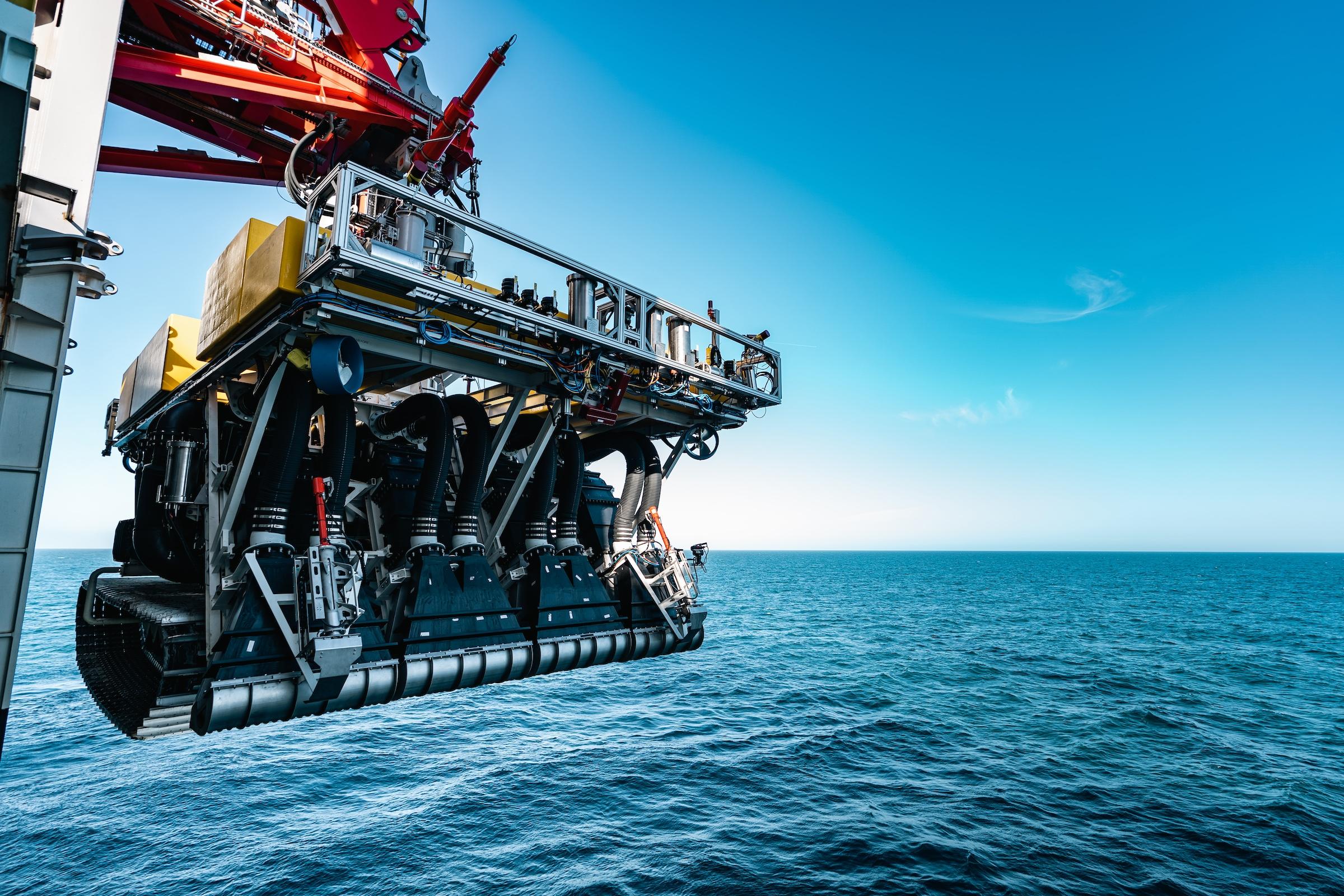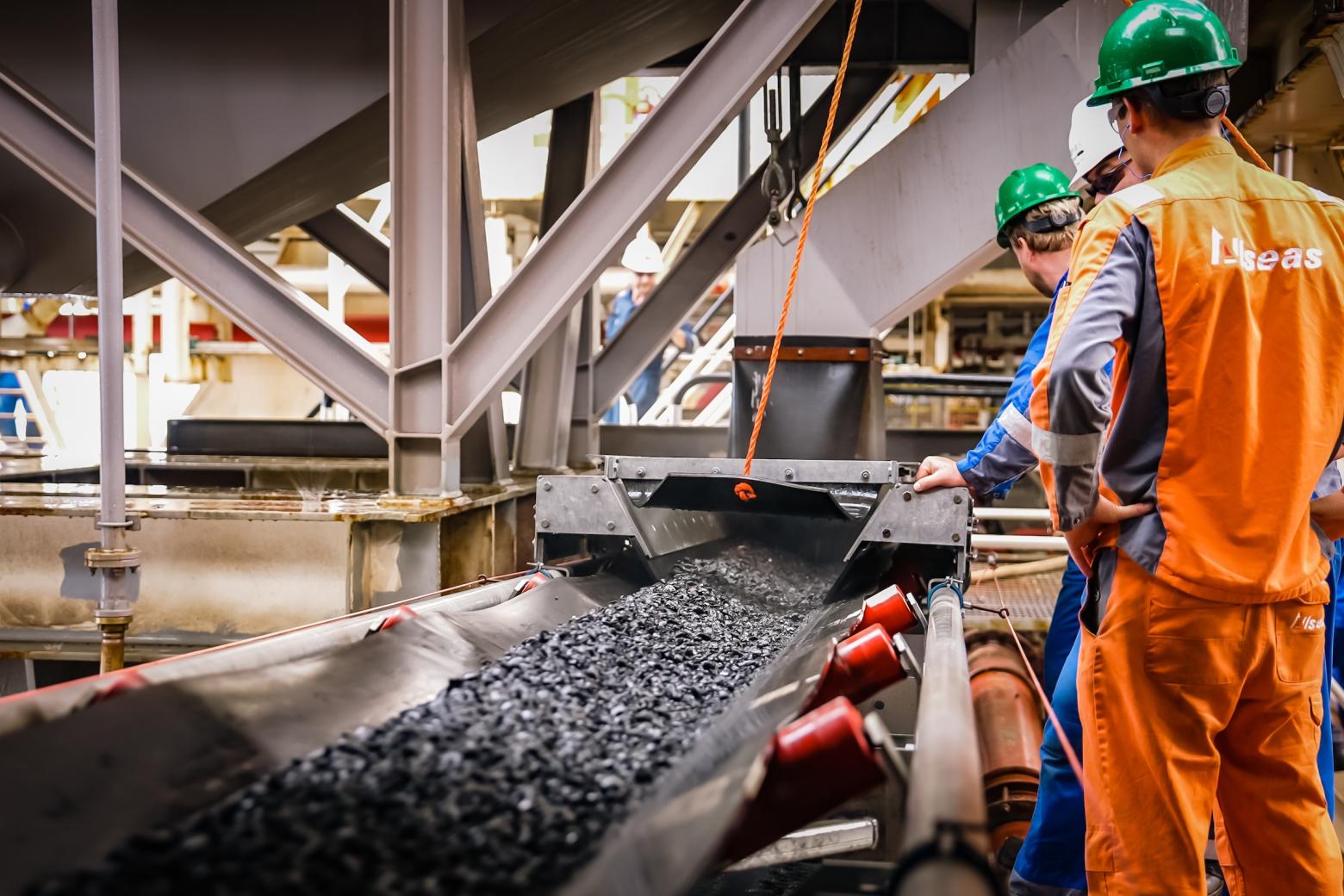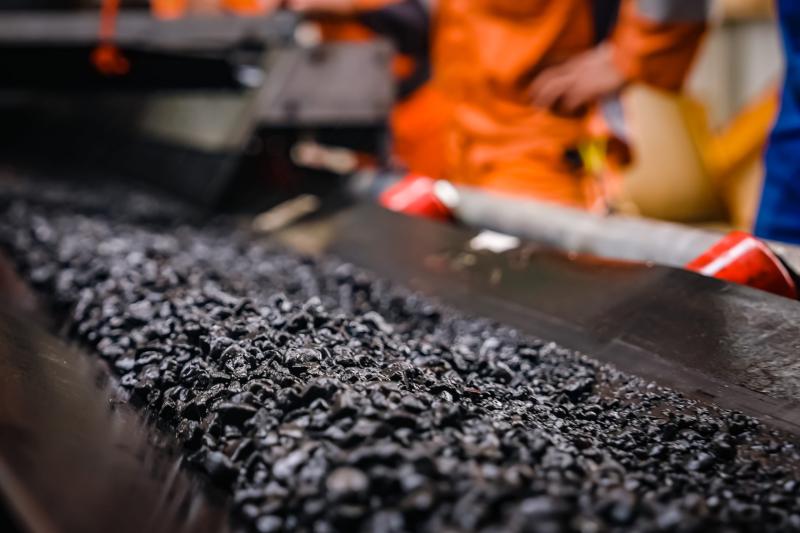
Pioneering nodule collection technology
At Allseas, we are leveraging decades of deepwater expertise to pioneer new frontiers in polymetallic nodule collection – a promising solution to meet the world’s growing demand for critical minerals.
These potato-sized nodules, lying unattached on the deep ocean floor, contain high concentrations of nickel, cobalt, copper, and manganese – essential metals for electric vehicle batteries, renewable energy technologies, vital infrastructure and defensive capabilities.
As demand for these metals accelerates, land-based mining alone cannot meet the need. With most supply controlled by a few countries, responsible alternatives are urgently required.
Polymetallic nodule collection represents the next exciting chapter for Allseas. Building on our track record of industry firsts and forward-looking vision, we are committed to delivering this sustainable solution to supply the metals needed for modern technologies that are the backbone of our society.
Environmental responsibility
We are a family-owned company with a long-standing commitment to operating responsibly. That commitment drives how we design and develop our deep-sea technology, with a strong focus on minimising environmental impact.
In 2022, we conducted integrated offshore trials in the Clarion-Clipperton Zone (CCZ). These trials offered a rare opportunity for independent scientists to evaluate the effects of nodule collection in real time, using advanced tools to monitor sediment plumes, sound levels and ecological activity.
One year later, follow-up surveys confirmed encouraging results: fast-settling plumes, limited dispersion, and early signs of recovery in test areas. While no form of extraction is without impact, this research supports our belief that nodules can be collected with far less environmental disruption than traditional land-based mining. Our ongoing monitoring programme remains the largest scientific effort ever conducted in the CCZ, providing crucial data for regulators and stakeholders.

A fully integrated seafloor-to-shore supply chain
In partnership with The Metals Company (TMC), Allseas is developing the world’s first complete seabed-to-shore deep-sea nodule supply chain.
At the heart of the system is our custom-built subsea collector – designed to gently pick up nodules with minimal disturbance to the surrounding seafloor. The nodules are transported 4.5 km to the surface via a vertical riser and stored on board our production vessel, Hidden Gem, before being offloaded to bulk carriers for onshore processing.


4.5 kilometres
nodules are transported to the surface via a vertical riser system
4500 tonnes
record-breaking nodule haul during 2022 trials
1970s
First successful integrated collection tests since the 1970s

Looking ahead
Our successful pilot marked a historic moment – proving, for the first time in 50 years, that deep-sea nodules can be safely and responsibly collected at scale. The focus now is on optimising and scaling up the system, applying lessons learned to enhance performance and readiness for commercial deployment.
We will continue to facilitate independent research, engage with regulators, and refine our technology to ensure that deep-sea mineral collection can be achieved transparently, responsibly, and with purpose.
From offshore pipelaying to installing and removing offshore structures, Allseas excels in the design and execution of large and complex offshore projects worldwide. Activities include design, engineering, procurement, fabrication and project management.
